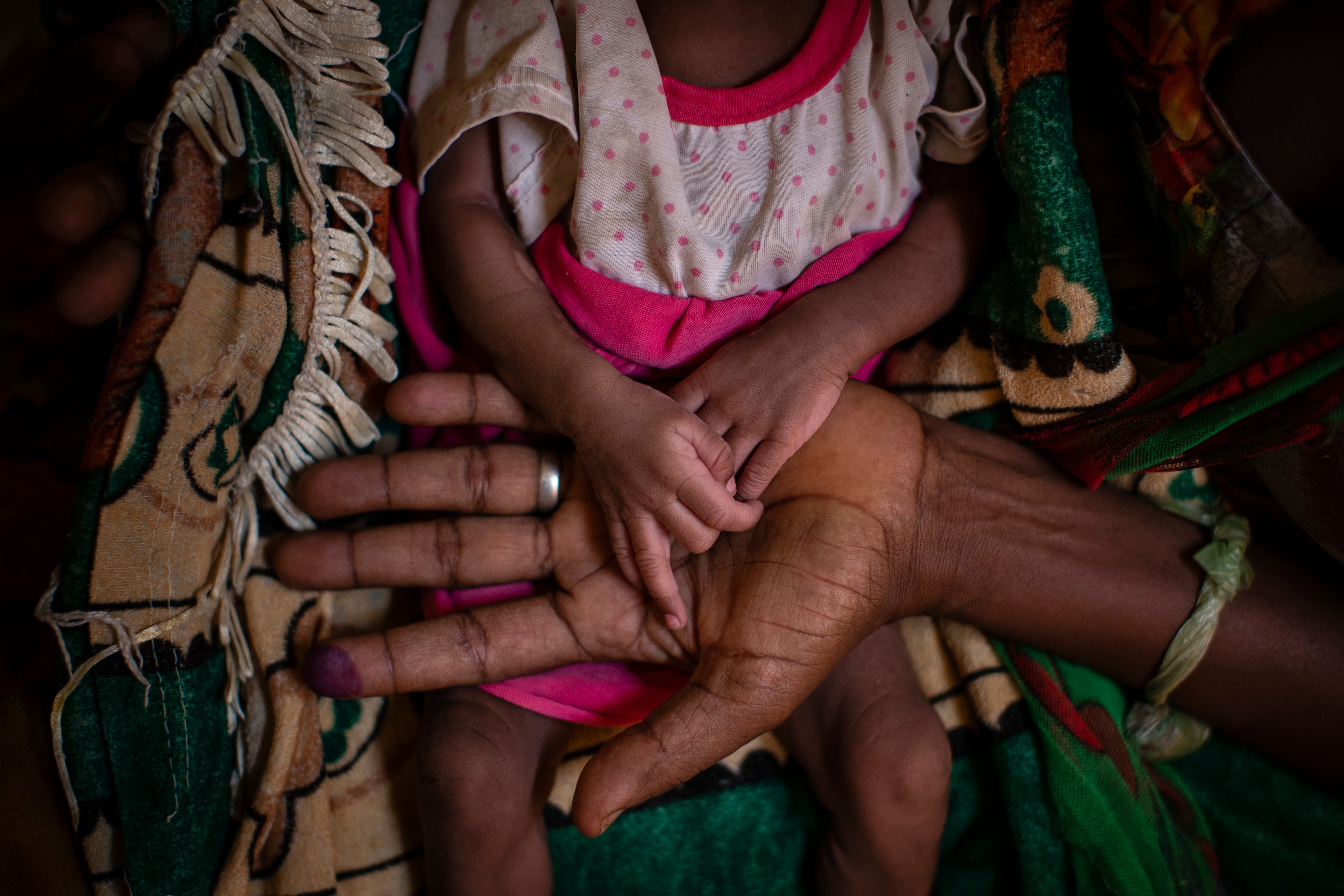Oxfam: 11 people die of hunger each minute around the globe
Oxfam says that 11 people die of hunger each minute and that the number of people facing famine-like conditions around the globe has increased six times over the last year

Your support helps us to tell the story
From reproductive rights to climate change to Big Tech, The Independent is on the ground when the story is developing. Whether it's investigating the financials of Elon Musk's pro-Trump PAC or producing our latest documentary, 'The A Word', which shines a light on the American women fighting for reproductive rights, we know how important it is to parse out the facts from the messaging.
At such a critical moment in US history, we need reporters on the ground. Your donation allows us to keep sending journalists to speak to both sides of the story.
The Independent is trusted by Americans across the entire political spectrum. And unlike many other quality news outlets, we choose not to lock Americans out of our reporting and analysis with paywalls. We believe quality journalism should be available to everyone, paid for by those who can afford it.
Your support makes all the difference.The anti-poverty organization Oxfam says 11 people die of hunger each minute and that the number facing famine-like conditions around the globe has increased six times over the last year.
In a report titled “The Hunger Virus Multiplies," Oxfam said Thursday that the death toll from famine outpaces that of COVID-19, which kills around seven people per minute.
“The statistics are staggering, but we must remember that these figures are made up of individual people facing unimaginable suffering. Even one person is too many,” said Oxfam America’s President and CEO Abby Maxman.
The humanitarian group also said that 155 million people around the world now live at crisis levels of food insecurity or worse — some 20 million more than last year. Around two-thirds of them face hunger because their country is in military conflict.
“Today, unrelenting conflict on top of the COVID-19 economic fallout, and a worsening climate crisis, has pushed more than 520,000 people to the brink of starvation,” added Maxman. “Instead of battling the pandemic, warring parties fought each other, too often landing the last blow to millions already battered by weather disasters and economic shocks.”
Despite the pandemic, Oxfam said that global military spending increased by $51 billion during the pandemic — an amount that exceeds by at least six times what the U.N. needs to stop hunger.
The report listed a number of countries as “the worst hunger hot spots” including Afghanistan, Ethiopia South Sudan Syria and Yemen — all embroiled in conflict.
“Starvation continues to be used as a weapon of war, depriving civilians of food and water and impeding humanitarian relief. People can’t live safely or find food when their markets are being bombed and crops and livestock are destroyed,” said Maxman.
The organization urged governments to stop conflicts from continuing to spawn “catastrophic hunger” and to ensure that relief agencies could operate in conflict zones and reach those in need. It also called on donor countries to "immediately and fully” fund the U.N.’s efforts to alleviate hunger.
Meanwhile, global warming and the economic repercussions of the pandemic have caused a 40% increase in global food prices, the highest in over a decade. This surge has contributed significantly to pushing tens of millions more people into hunger, said the report.